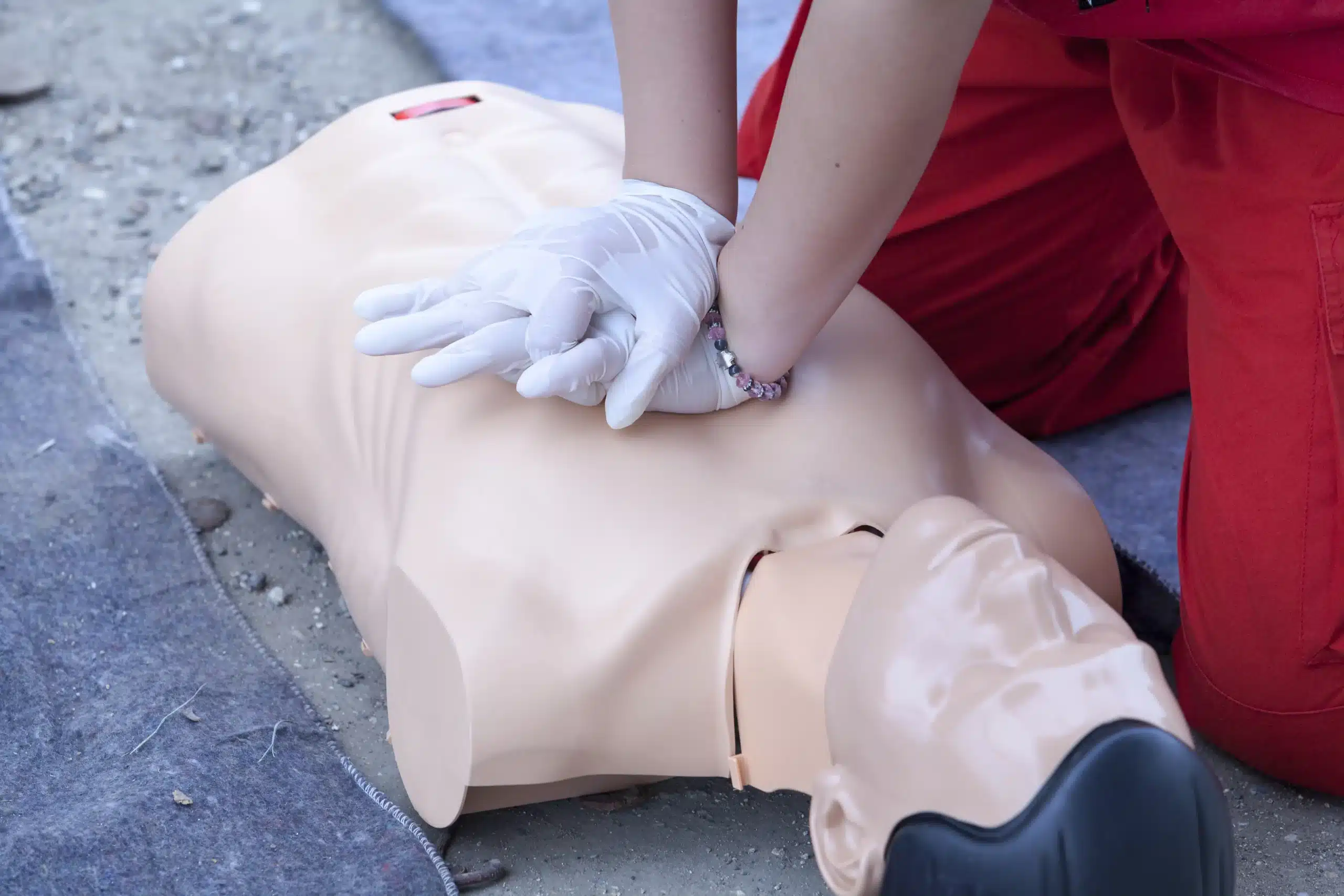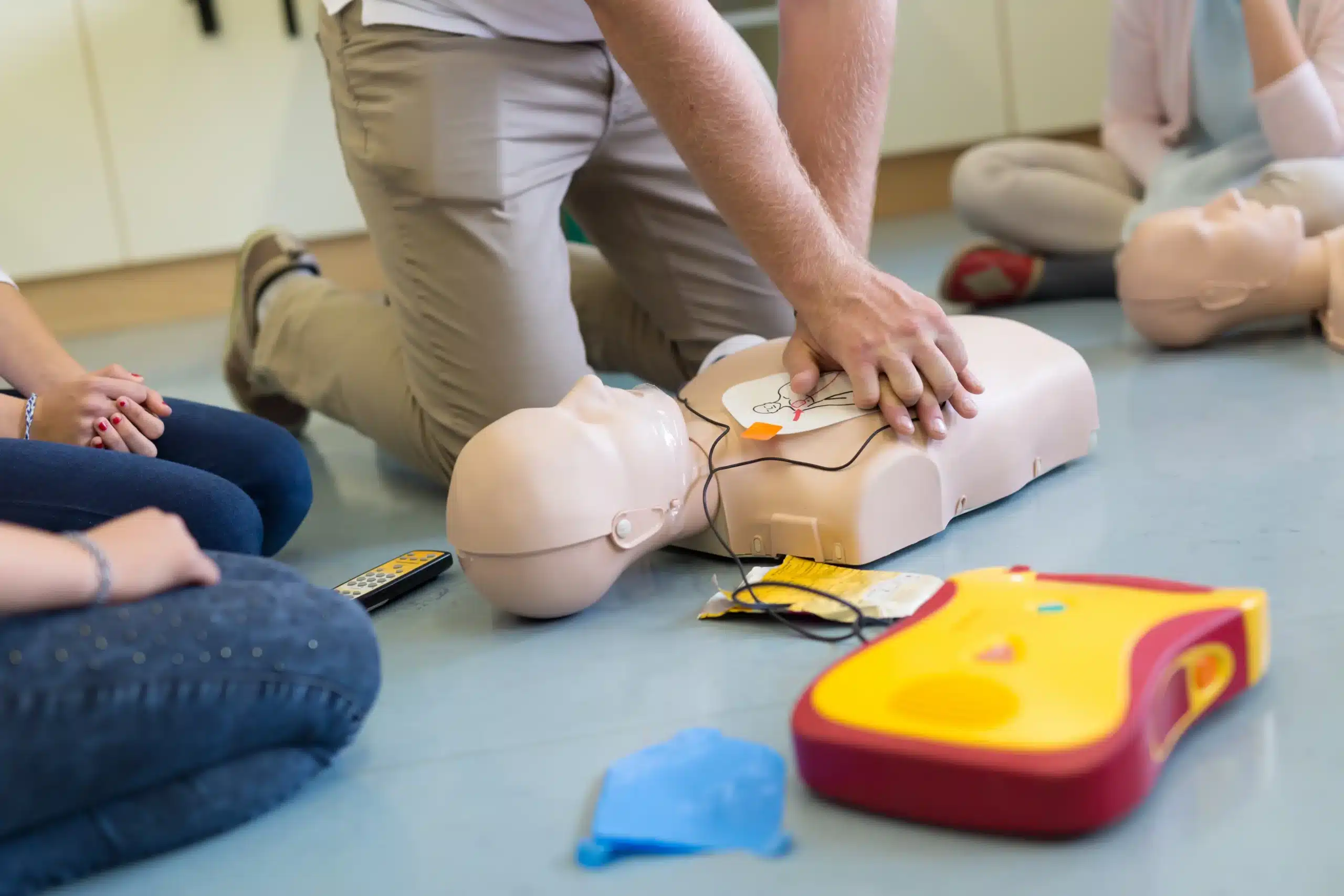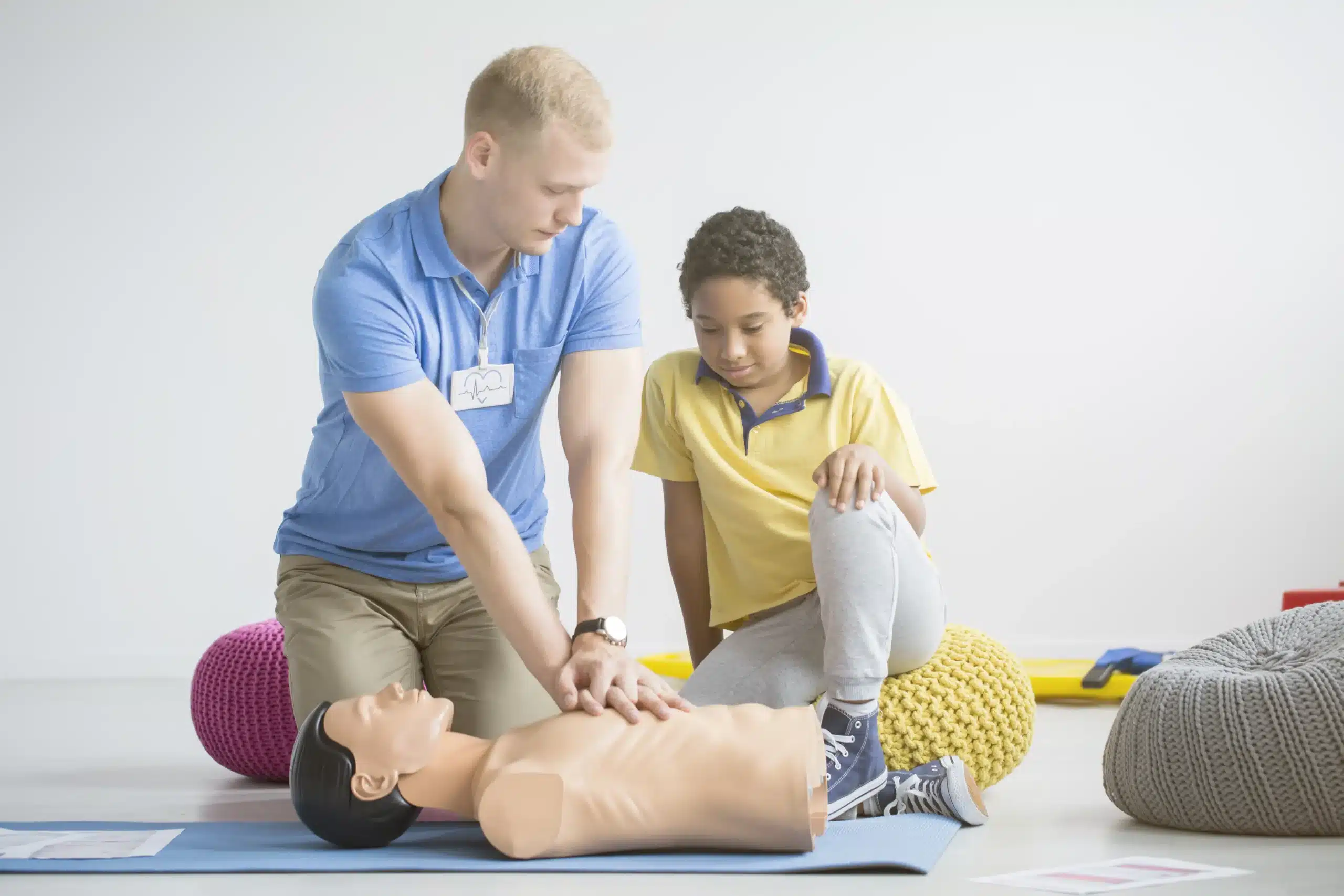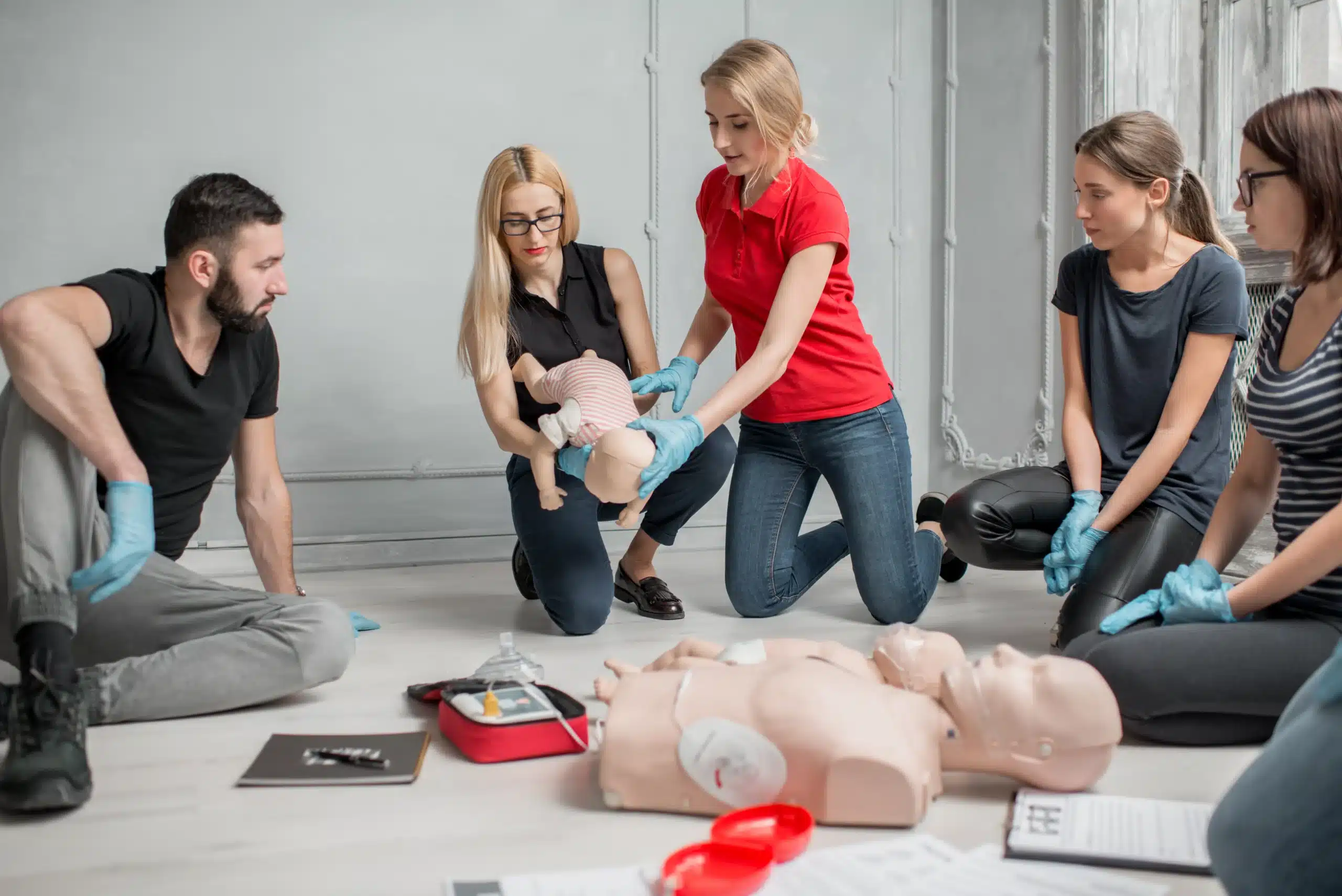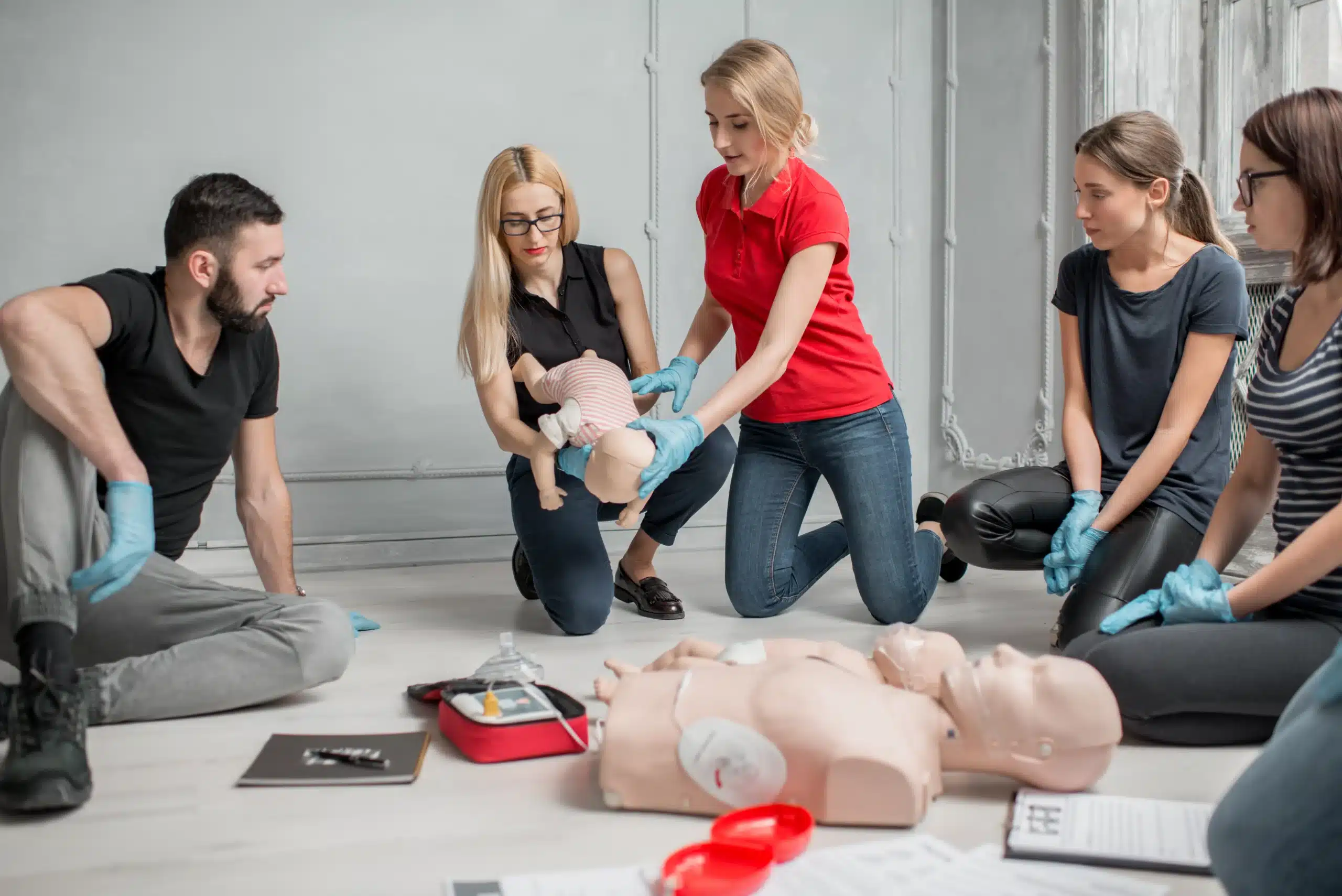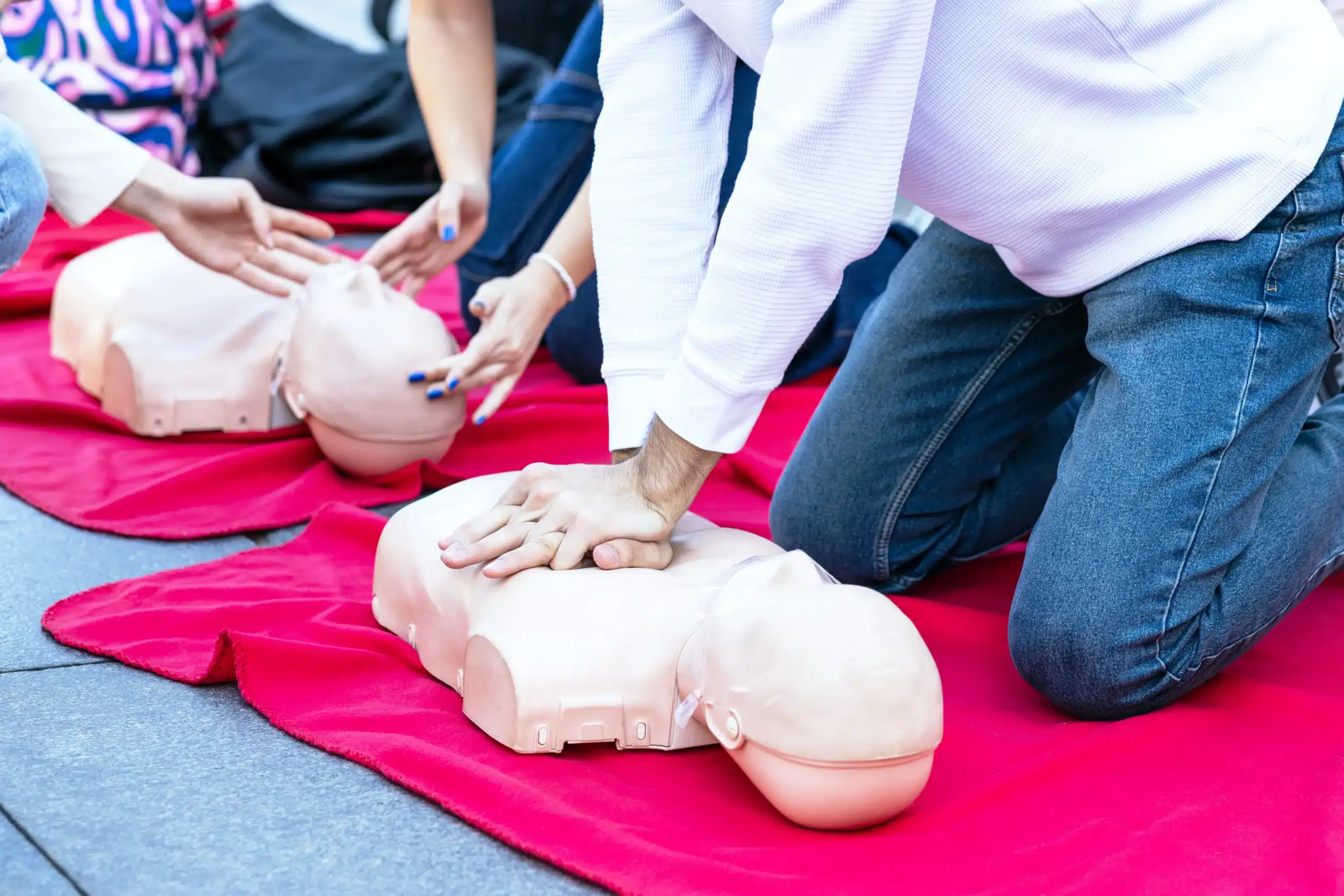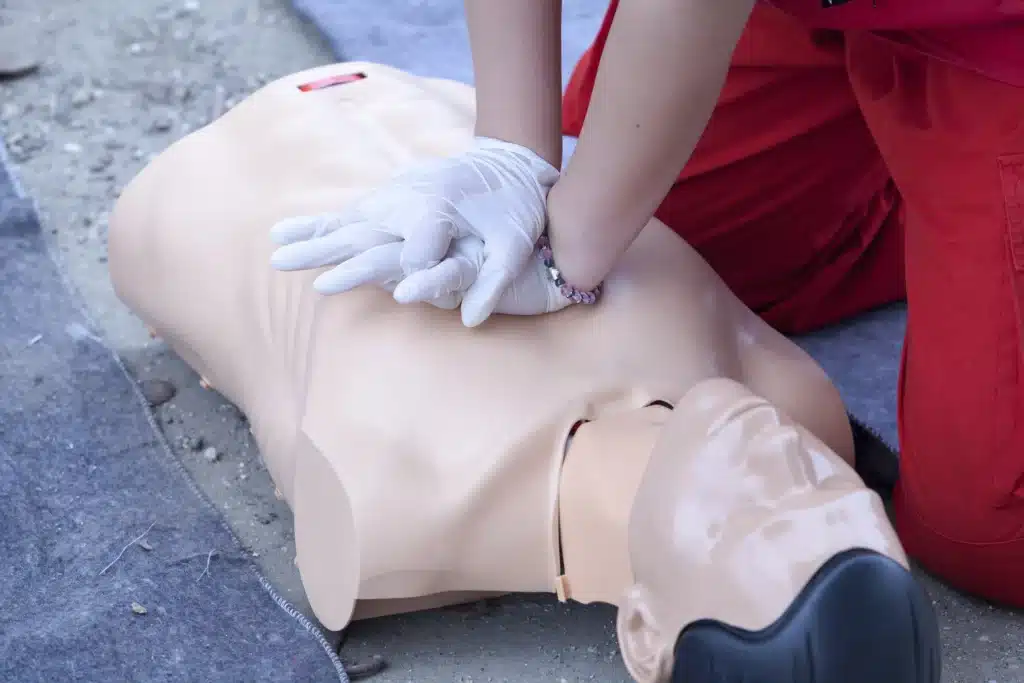Working with children is a rewarding experience, but it also comes with a huge responsibility. As healthcare providers, we know that kids aren’t just small adults—their medical needs are unique. That’s why Pediatric Advanced Life Support (PALS) training is so essential, especially in a bustling city like Oakland. PALS certification equips you with the specialized knowledge and skills to confidently handle pediatric emergencies. This article explores the importance of PALS, what the training entails, and how to find the right course in Oakland for your needs. Whether you’re a seasoned healthcare professional or just starting your career, having the right skills can make all the difference in a child’s life.
Key Takeaways
- PALS certification equips healthcare providers with essential skills: It provides specialized training to manage pediatric emergencies effectively, leading to better patient outcomes. Choose an AHA-certified course for the highest quality training.
- Consider key factors when selecting a PALS course: Think about course format, duration, cost, instructor qualifications, and reviews. A blend of online learning and in-person skills practice is often ideal.
- Prepare for your PALS course by ensuring you have the necessary prerequisites: A current healthcare provider-level CPR certification is generally recommended. Use the provided study materials and actively participate in all sessions. Renew your certification every two years to stay up-to-date.
What is PALS?
Pediatric Advanced Life Support (PALS) is a specialized training program that teaches healthcare providers how to respond to pediatric emergencies. This certification focuses on assessing and managing seriously ill or injured infants and children. The goal is to ensure healthcare professionals can provide high-quality care when it matters most.
Key Skills & Knowledge
PALS certification gives you essential skills for pediatric emergencies. You’ll learn airway management and resuscitation techniques, gaining the knowledge and confidence to handle critical situations involving infants and children. These skills ultimately improve patient outcomes. A good PALS course also covers effective communication and teamwork during emergencies. This training helps healthcare providers coordinate their efforts seamlessly, leading to better patient care. For more information on PALS courses, visit our CPR and First Aid classes page.
Why PALS Matters for Healthcare Providers
PALS certification is crucial for healthcare providers working with children. It ensures they have the specialized training to handle pediatric emergencies effectively. This specialized knowledge can significantly improve outcomes for young patients. Finding the right Pediatric Advanced Life Support (PALS) certification course is a critical step for any healthcare provider specializing in pediatric care. Whether you’re a doctor, nurse, or another healthcare professional, PALS equips you with the skills to make a real difference. Contact us to learn more about PALS certification in San Pablo.
Find Your PALS Course in Oakland
Finding the right Pediatric Advanced Life Support (PALS) course is crucial for any healthcare provider working with infants and children. Oakland offers a variety of options, so let’s break down what to look for and where to find these essential courses.
AHA-Certified Courses
It’s important to choose an American Heart Association (AHA) certified PALS course. AHA certification ensures your training aligns with the highest standards and provides the most up-to-date protocols for pediatric emergencies. These courses cover everything from airway management and resuscitation techniques to recognizing and responding to life-threatening conditions. This training gives you the confidence and skills to make a real difference in critical situations, ultimately improving patient outcomes. You can explore AHA-certified PALS courses on the AHA website.
PALS with Safety Training Seminars
Safety Training Seminars offers convenient and comprehensive PALS certification in Oakland. As a woman-owned AHA Training Center, they provide high-quality instruction and flexible scheduling options. They offer courses throughout the week, making it easier to fit training into your busy schedule. Plus, their commitment to customer service ensures a supportive learning environment. Learn more about their CPR, BLS, ACLS, PALS, and First-aid classes.
Other Local Options
Several other organizations offer PALS training in the Oakland area. It’s always a good idea to compare options to find the best fit for your needs.
Project Heartbeat
Project Heartbeat provides PALS certification and renewal courses using instructor-led training, videos, and simulations. This hands-on approach can be beneficial for those who learn best through interactive practice.
Oakland CPR Classes
For those seeking a range of certifications, Oakland CPR Classes offers AHA-accredited courses in CPR, BLS, ACLS, PALS, and First Aid. Having multiple options in one place can streamline your training process.
Heart Start CPR
Heart Start CPR offers PALS certification and recertification classes in the San Francisco Bay Area, with same-day certification cards valid for two years. This can be a convenient option for those needing quick certification or renewal.
Choosing a PALS Course
Deciding on the right PALS course involves a few key considerations. Think about what works best for your schedule, budget, and learning style. Here’s a breakdown to help you choose wisely:
Course Formats & Duration
PALS courses typically blend online learning with in-person skills sessions. This hybrid approach lets you learn the material at your own pace online, then practice those crucial skills hands-on. For example, many courses include online modules (around 3-4 hours) followed by a shorter in-person skills check (30-40 minutes). This format offers flexibility while ensuring you get the practical experience you need. Check out the course calendar to see what’s available.
Cost, Certification & Renewal
Course fees can vary, so it’s smart to compare pricing. Look for a course that bundles everything you need—the online portion, skills testing, and your certification card—into one clear price. Safety Training Seminars offers a low-price guarantee, giving you confidence you’re getting a good value. Most PALS certifications are valid for two years, after which you’ll need a refresher course.
Instructor Qualifications
Experienced, certified instructors are essential for a high-quality PALS course. The American Heart Association sets rigorous standards for instructors, requiring them to be certified healthcare providers with demonstrated PALS expertise. This ensures your instructor has the knowledge and skills to guide you effectively. When researching courses, don’t hesitate to ask about the instructors’ credentials and experience. Reach out to learn more about the instructors at Safety Training Seminars.
Reviews & Success Rates
Reading reviews from past students can offer valuable insights into a course’s strengths and weaknesses. Look for programs with positive feedback on the quality of instruction, helpful materials, and the overall learning experience. A high success rate for course completion and certification is another good indicator of a program’s effectiveness. Contact Safety Training Seminars to discuss our student success rates and any questions you may have.
Prepare for PALS Certification
Getting ready for your PALS certification involves understanding the prerequisites, gathering your study materials, and knowing how to maintain your certification. Let’s break down each step.
Prerequisites & Study Materials
Pediatric Advanced Life Support (PALS) certification builds on a foundation of existing knowledge. While specific requirements can vary, it’s generally recommended to have a current healthcare provider-level CPR certification before taking PALS. This ensures you’re already familiar with basic life support skills. A good understanding of pediatric anatomy and physiology is also helpful.
For study materials, your course provider is the best resource. Many offer comprehensive PALS study guides and workbooks, often included in the course fee. These resources typically cover essential concepts like airway management, rhythm recognition, and resuscitation techniques. You can also find supplemental resources online and at medical libraries. Safety Training Seminars offers AHA-accredited PALS courses in San Pablo, convenient for those in Richmond, Berkeley, and Oakland.
Tips for Success
Attending all course sessions is crucial for PALS certification. These sessions offer valuable opportunities for interaction with instructors and hands-on practice. Active participation is key—ask questions, engage in discussions, and take advantage of the practice scenarios. Consider supplementing your in-class learning with online resources. A good online PALS course can reinforce what you’re learning in person and offer extra practice.
Maintain & Renew Your Certification
PALS certification is usually valid for two years. To keep your skills sharp and stay up-to-date with the latest guidelines, plan to renew your certification before it lapses. The American Heart Association (AHA) periodically updates its guidelines, so refreshing your knowledge is essential for providing effective care. Check with your certifying organization or Safety Training Seminars for renewal options and updated course materials. Maintaining your certification demonstrates your commitment to handling pediatric emergencies and achieving the best possible patient outcomes.
Related Articles
- PALS Certification in Berkeley: Your Comprehensive Guide – San Pablo CPR Classes
- PALS Certification in Richmond: Your Complete Guide – San Pablo CPR Classes
- HeartCode PALS Richmond: Your Certification Guide – San Pablo CPR Classes
- Online PALS Classes in Berkeley: The Ultimate Guide – San Pablo CPR Classes
- AHA PALS Classes in San Pablo, CA – San Pablo CPR Classes
Frequently Asked Questions
What is the difference between PALS and BLS?
While both PALS and BLS teach life-saving skills, BLS (Basic Life Support) focuses on the fundamentals of CPR for all ages, whereas PALS (Pediatric Advanced Life Support) builds upon those basics with specialized techniques for infants and children. PALS delves deeper into the physiological differences between adults and children, addressing pediatric-specific emergencies. Think of BLS as the foundation and PALS as the specialized structure built on top.
How long does a PALS certification last, and how do I renew it?
PALS certification typically remains valid for two years. To renew, you’ll need to take a PALS recertification course. This refresher course covers any updated guidelines and reinforces essential skills. Contact your original certifying organization or Safety Training Seminars for recertification options.
What if I don’t work in a hospital setting? Do I still need PALS?
Even if you’re not in a hospital, PALS can be invaluable if your work involves children. Anyone responsible for the well-being of infants and children, such as school nurses, camp counselors, or daycare providers, can benefit from the specialized training PALS provides. It equips you to respond effectively in emergencies, potentially saving lives.
What should I expect during a PALS course?
Most PALS courses use a blended learning approach. You’ll complete online modules at your own pace, covering key concepts and procedures. Then, you’ll attend an in-person skills session to practice techniques and demonstrate competency. Expect hands-on training, interactive scenarios, and opportunities to ask questions.
How do I choose the right PALS course for me?
Consider factors like course format, cost, instructor qualifications, and schedule flexibility. Look for an AHA-certified course to ensure it meets the highest standards. Reading reviews from previous students can also give you a sense of a program’s quality and effectiveness. Don’t hesitate to contact different providers to discuss your needs and find the best fit.
